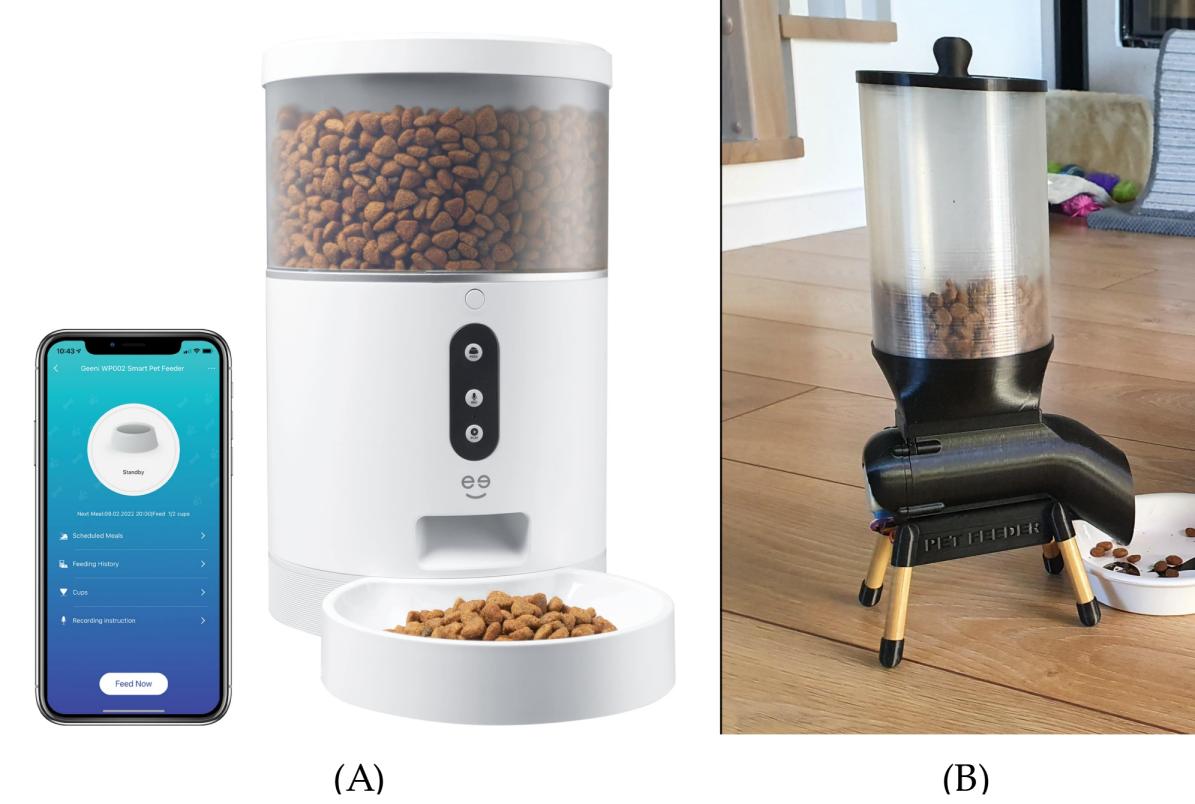This week's assignment is is to answer the following questions.
The problem I want to solve is to know how much food the pets consume, so the main objective of this project is to monitor the state of the plate by measuring how many cookies are deposited and how many are removed.
Many automatic feeders have been made, some with the Internet of Things, remotely controlling the food dispenser or having built-in surveillance cameras.

Figure N°1: Cat feeders (A) Commercial product (B) DIY project
The main novelty is based on the monitoring of the filling state of the bowl, which will be measured with two electrodes that will implement a step response. An electronic circuit board will be designed to use the XIAO ESP32 with an arrangement of components to read a step response with electrodes connected to the base of a cat food dish, additionally a mechanical structure will be designed to move the food towards the dish, Finally, a composite-based carcass structure will be designed using fabric with resin.
| Component | Amount | Cost |
|---|---|---|
| XIAO ESP32 | 1PCS | 9.9 USD |
| Stepper motor 28byj-48 | 1PCS | 12.9 USD |
| ULN2003 driver | 1PCS | 0.6 USD |
| VL6180X | 1PCS | 4.5 USD |
| PLA filament | 1PCS | 20 USD |
| Cardboard | 1PCS | 5 USD |
| Epoxy Resin | 1PCS | 16.9 USD |
| Fabric | 1PCS | 2 USD |
| Miscellaneous electronic components | 1PCS | 15 USD |
Most of the material has been purchased from local shops and Amazon.
The approximate cost of the project is 85 dollars
The system to dispense biscuits in the bowl will be developed and then a step response to evaluate the obstruction between the electrodes that would indicate the filling level of the bowl.
3D printing, laser cutting, composites (resin+fabric)
The main question we seek to answer is "Is it possible to accurately gauge the number of cookies in a pet bowl?"
The weight of the cookies read by the step response should be evaluated in comparison with a calibrated scale.